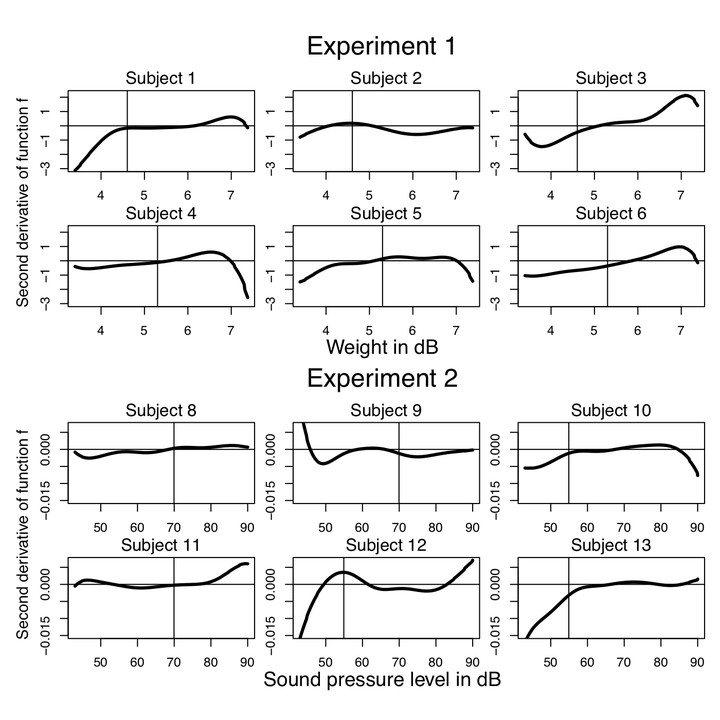 Analysis of data by Luce & Mo (1965)
Analysis of data by Luce & Mo (1965)Measurement theory is “a field of study that examines the attribution of values to traits, characteristics, or constructs. Measurement theory focuses on assessing the true score of an attribute, such that an obtained value has a close correspondence with the actual quantity” (APA Dictionary of Psychology, 2nd ed., 2015). There are at least two different approaches to measurement, one based on statistical descriptive models, corresponding to a subset of psychometrics, and another one based on mathematical axiomatic models, corresponding to a subset of mathematical psychology. Psychometrics is “the branch of psychology concerned with the quantification and measurement of mental attributes, behavior, performance, and the like, as well as with the design, analysis, and improvement of the tests, questionnaires, and other instruments used in such measurement” and mathematical psychology is “an approach to psychological phenomena that uses mathematical techniques to model the underlying processes and to predict the outcomes of these processes” (APA Dictionary of Psychology, 2nd ed., 2015). The objective of this project is to propose statistically sound methods for psychological measurement, and bridge the gap between mathematical psychology and psychometrics.
Raffaello Seri
Professor of Econometrics
My research interests include statistics, numerical analysis, operations research, psychology, economics and management.
Related
- Calibration of Agent-Based simulation Models via Model Confidence Sets
- Nonparametric estimation and inference in economic experiments
- Nonparametric estimation and inference in psychological and economic experiments
- A statistical theory of nonparametric estimation and inference in economic experiments
- Nonparametric estimation and inference in economic experiments